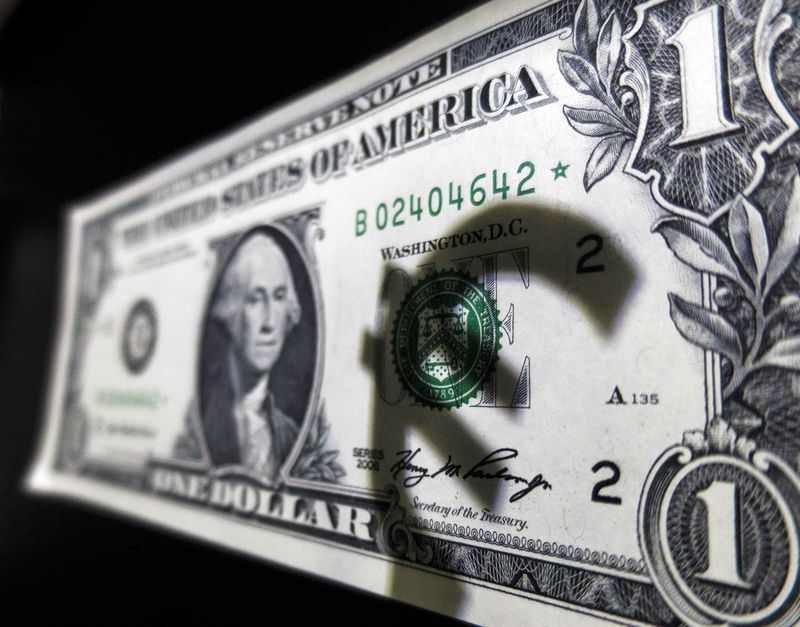Investing.com - The diverging monetary policy outlook between the Federal Reserve and the European Central Bank is likely to boost the dollar and weigh on the euro in the coming week, by making the dollar more attractive to yield-seeking investors.
Meanwhile, the Bank of England is expected to keep interest rates on hold on Thursday, as is the Swiss National Bank.
Investors will get an update on the health of the U.S. housing market with Tuesday’s building permits and housing starts data and Wednesday’s report on existing home sales.
The euro zone is to release data on private sector business activity on Friday.
The euro regained some ground against the dollar on Friday, with EUR/USD rising 0.36% to 1.1610, after falling 1.88% in the previous session. The euro ended the week down 1.34%.
The euro tumbled on Thursday after the ECB outlined plans to wind up its massive asset purchase program by December, but also pledged to keep interest rates unchanged until at least the middle of 2019.
A day earlier a more hawkish sounding Fed raised interest rates for the second time this year and indicated that it now sees two more rate increases before the years end.
The U.S. dollar index, which measures the greenback’s strength against a basket of six major currencies, slid 0.14% to 94.80 late Friday, after rising to an eleven-month high of 95.13 earlier. For the week, the index was up 1.33%, its best weekly performance in seven weeks.
The dollar was little changed against the yen late Friday, with USD/JPY at 110.66, off a three-week high of 110.90 reached overnight.
The dollar gave up gains against the Japanese currency after U.S. President Donald Trump announced tariffs on $50 billion of Chinese imports, prompting Beijing to respond in kind, ramping up trade tensions between the world’s two largest economies.
The safe haven yen is often sought by investors in times of geopolitical tensions and market turmoil.
The pound edged higher on Friday, with GBP/USD rising 0.11% to 1.3276, still within striking distance of last month’s seven-month lows of 1.3203 after a batch of mixed UK economic data indicated that the economic outlook remains fragile.
The euro pushed higher against sterling, with EUR/GBP up 0.19% after falling 1.04% on Thursday amid a broad based selloff.
Ahead of the coming week, Investing.com has compiled a list of significant events likely to affect the markets.
Monday, June 18
Financial markets in China will be closed for a holiday.
Atlanta Fed President Raphael Bostic is to speak at an event in Savannah.
ECB President Mario Draghi is to speak at the ECB Forum on Central Banking, in Portugal.
San Francisco Fed chief John Williams is to speak at an event in New York.
Tuesday, June 19
The Reserve Bank of Australia is to publish the minutes of its latest policy setting meeting.
ECB head Mario Draghi is to speak at the second day of the central bank’s forum in Portugal.
The U.S. is to release data on building permits and housing starts.
Wednesday, June 20
ECB head Mario Draghi, along with Bank of Japan Governor Haruhiko Kuroda and Fed Chairman Jerome Powell are due to participate in a panel discussion at the ECB forum in Portugal.
The U.S. is to produce figures on existing home sales.
Thursday, June 21
New Zealand is to release data on first quarter economic growth.
The Swiss National Bank is to announce its latest monetary policy decision and hold a press conference following its policy meeting.
The UK is to report on public sector borrowing figures.
Deutsche Bundesbank President Jens Weidmann is to speak at an event in Paris.
The BoE is to announce its latest monetary policy decision.
The U.S. is to release the weekly jobless claims report along with data on manufacturing activity in the Philadelphia region.
BoE Governor is to speak at an event in London.
Friday, June 22
The euro zone is to release data on manufacturing and service sector activity.
Canada is to round up the week with reports on consumer inflation and retail sales.
